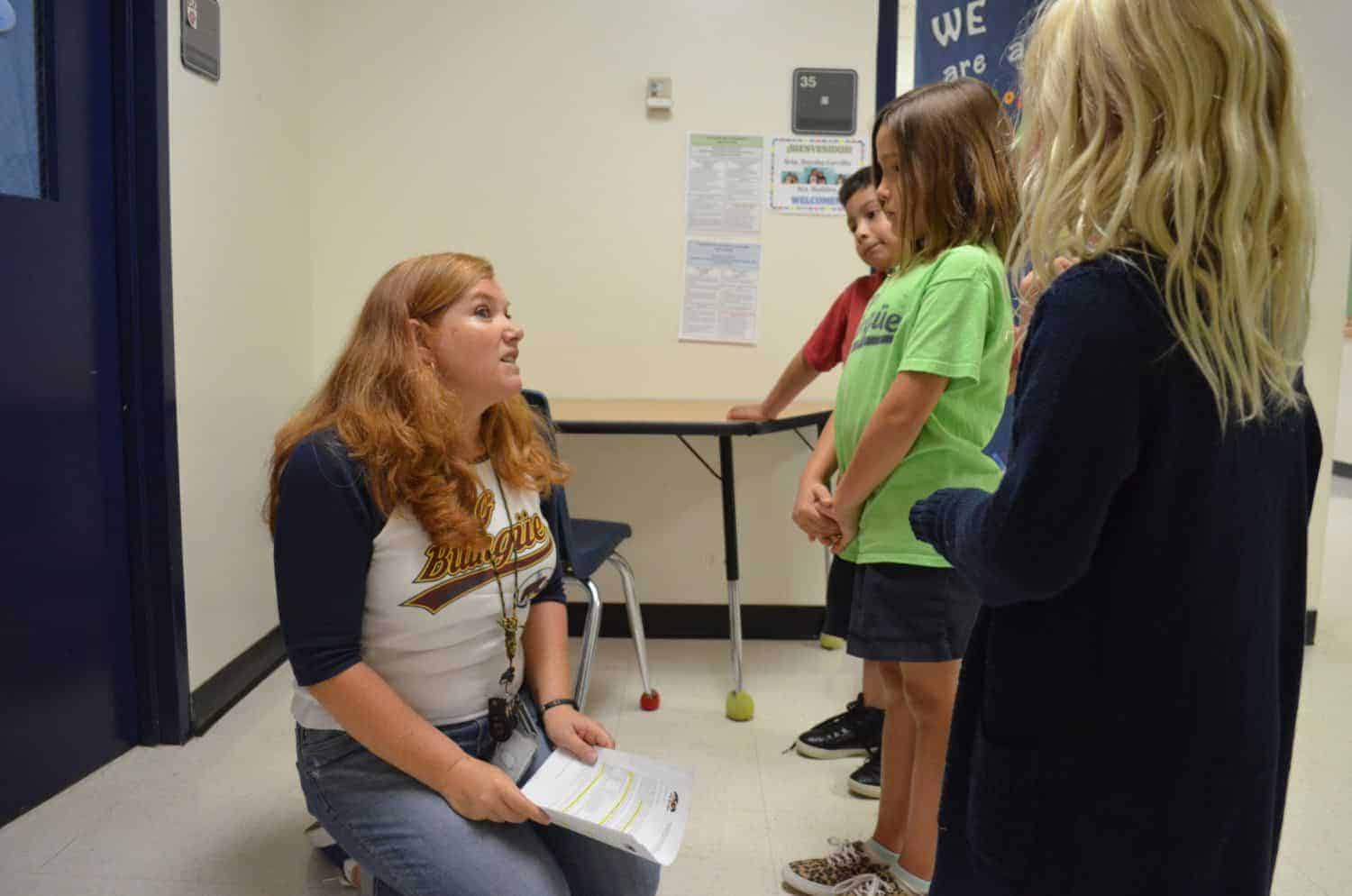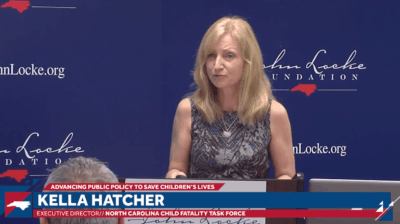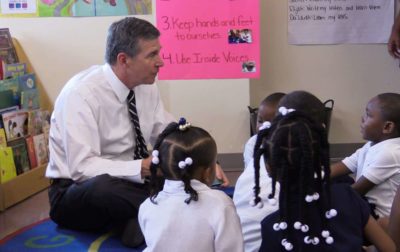Nestled in Carrboro, Frank Porter Graham (FPG) Bilingüe Elementary School splits its school day between lessons taught in English and Spanish. The student body is also equally composed of native English and Spanish speakers. The goal is instilling students with the capacity to work in cross-cultural groups — a skill Principal Emily Bivins said is critical for the 21st century.
“It’s every day you are interacting and having to work with children who don’t look like you, who don’t speak the same language that you do in your home, and you’re expected to work together,” Bivins said. “And that’s just the way it is.”
How FPG elementary came to be
Opened in the fall of 2013, the magnet school serves 617 children from pre-kindergarten to fifth grade through a bilingual program. Although federal grants funded ESL (English as a Second Language) programs for the Chapel Hill-Carrboro City district for nearly 15 years before the bilingual school, these programs were insufficient with the explosion of the Latino population in Carrboro.
“At that time, there were about 600 Latino children in other elementary schools who were not receiving dual language services,” Bivins said.
Bivins said research confirms bilingual dual language services are the best practice for students whose second language is English. She played a key role in carving the path for the bilingual school to emerge.
Bivins’ philosophy
Bivins lives by the notion that every child can be successful. Her focus is not on equality, but on equity. She concentrates on crafting the right opportunities and conditions for all kids to realize their potential, which does not equate to providing all students with the same resources.
“I think that public education can be the equalizer for kids that are disadvantaged,” Bivins said. “And I think it can also be the humbler for the kids that are advantaged.”
Bivins developed and integrated her philosophy into many experiences in elementary education. She has taught at three elementary schools, served as the district’s director of elementary instruction and staff development, and served as assistant principal and a principal prior to her principalship at FPG elementary. She was also named the Chapel Hill-Carrboro City School District’s 2009-2010 Principal of the Year.
Under her supervision, the FPG magnet school embodies her vision to bridge differences while celebrating cultural influences.
“You should feel it when you come into the building and you walk up and down the halls,” Bivins said. “And if you don’t feel it, then that means we’re not really doing what we need to do to elevate the status of Spanish.”
Bivin’s believes one of the largest benefits of the bilingual program is for privileged children to become friends with lower-income peers before awareness of economic disparities emerges.
“Their best friends are living in a trailer park with four families, and they don’t think anything of it,” she said. “They become friends before that ever becomes an issue.”
That tolerance is then generalized to other areas like gender, sexual orientation, and religion, fostering a community grounded in acceptance from an early age.
The bilingual program also teaches Latino students to value their culture in a community whose norms more closely align with those of ‘white America.’ Bivins said strengths of minority cultures are often overlooked, but that is not the case at FPG elementary.
Bivins’ goal for her school is, “For families to be able to come to school and know that someone here is always going to speak their language and that we’re going to value the family structure.”
Yet Bivins acknowledges she is imperfect. Though she encourages cross-cultural competence among her students, she does not speak Spanish and humbly admits to making mistakes along the way.
“There are thousands of things I do everyday that are racist, but that are not intentional,” she said. “I make mistakes like everyone else does.”
One of her favorite aspects of the principalship is the constant challenge to learn and teach. Kids are unpredictable and regularly throw curveballs, so no day as a principal is ever the same.
“For me, once you’re a teacher, you’re always a teacher,” she said. “That’s part of what makes it magical.”
The defining qualities of an exceptional principal
“Probably 90 percent of my job is relationships,” Bivins said.
Though she has expertise in curriculum instruction alongside a doctorate earned in 2003 and national board certification, she said teachers will leave her at the first opportunity if no sense of trust and camaraderie exists. Principals must be good listeners and work alongside, rather than above, those they supervise.
Efficiency and ethics are also critical. Bivins sees an 80-hour work week as unhealthy and unsustainable. Employing an equity lens is especially important in schools like FPG elementary, as the success of each student must be the top priority.
Even if a school overall has a high proficiency rate, Bivins said principals must focus on the gap between the highest and lowest performers. Schools sometimes fail to focus on the growth of individual students, which she sees as the fundamental problem of public education.
Legislators ought to work alongside schools to craft policy, she believes, yet communication is often insufficient. This often results in policies that are not designed to meet the needs of students.
“I think before you make policy, you need to come and visit some schools,” she said. “I would love people who make policy to really ask the people that are going to be responsible for implementing the policy: (1) what do you think about it? And (2) what are the pitfalls?”
Successful principals also have strong support systems to deal with the many challenges. Mentors, colleagues, and faith all help Bivins realize her potential. Though she would make more money if she returned to teaching in the classroom, she finds her work rewarding, including managing a million-dollar budget and establishing tolerant culture norms.
What lies ahead
Bivins plans to retire in two years, when she will transition her focus to coaching rising leaders in education. Though she is grateful for the mentorship she has enjoyed throughout her career, she said nourishment and development are not systemic in education.
For instance, she hopes to coach future principals how to deal with the isolation and loneliness of the job.
“You don’t get to go out for drinks with your colleagues on Friday afternoons like you do when you’re a teacher,” she said. “You have to figure out how to feel like you’re not alone — I think people need help with that.”
She sees the best school communities emerging when leadership development is valued, so that is where she will dedicate herself in two years.
In the meantime, her challenge is to create systemic, replicable processes so the school and its mentality exist beyond her.
“If all I am is a flash in the pan for the six years that I was here, then how sad for the children that come after,” she said. “I did a disservice to the school in not creating a sustainable system.”
Editor’s Note: Emily Sasser contributed reporting.





